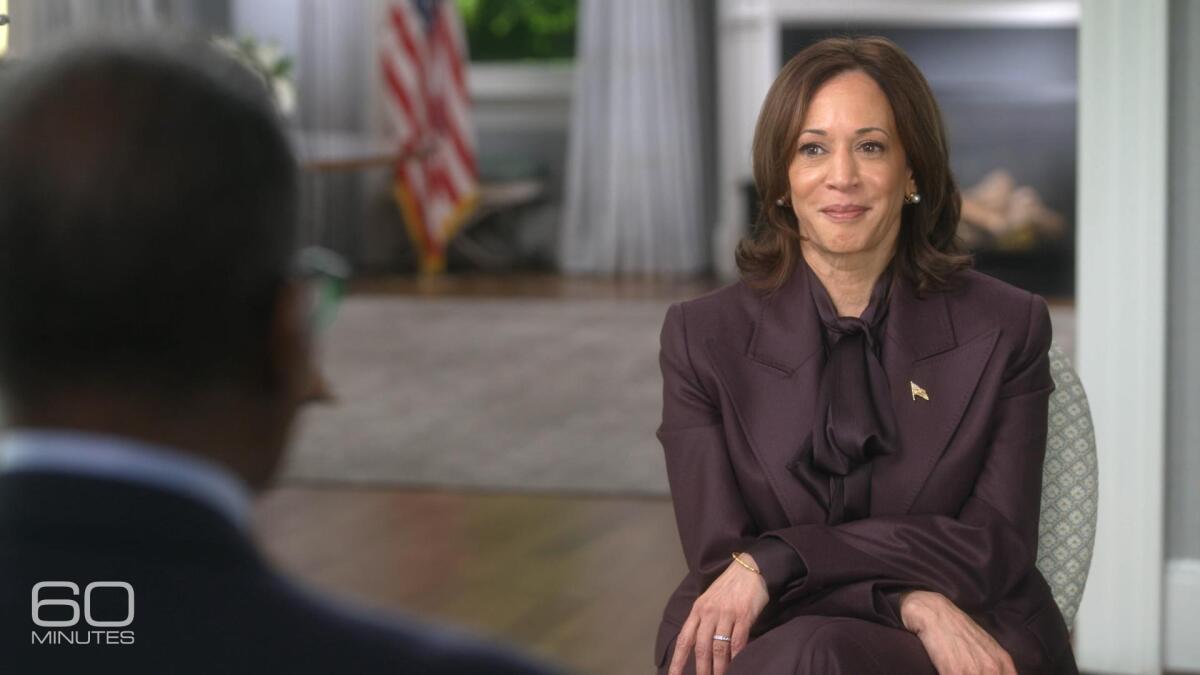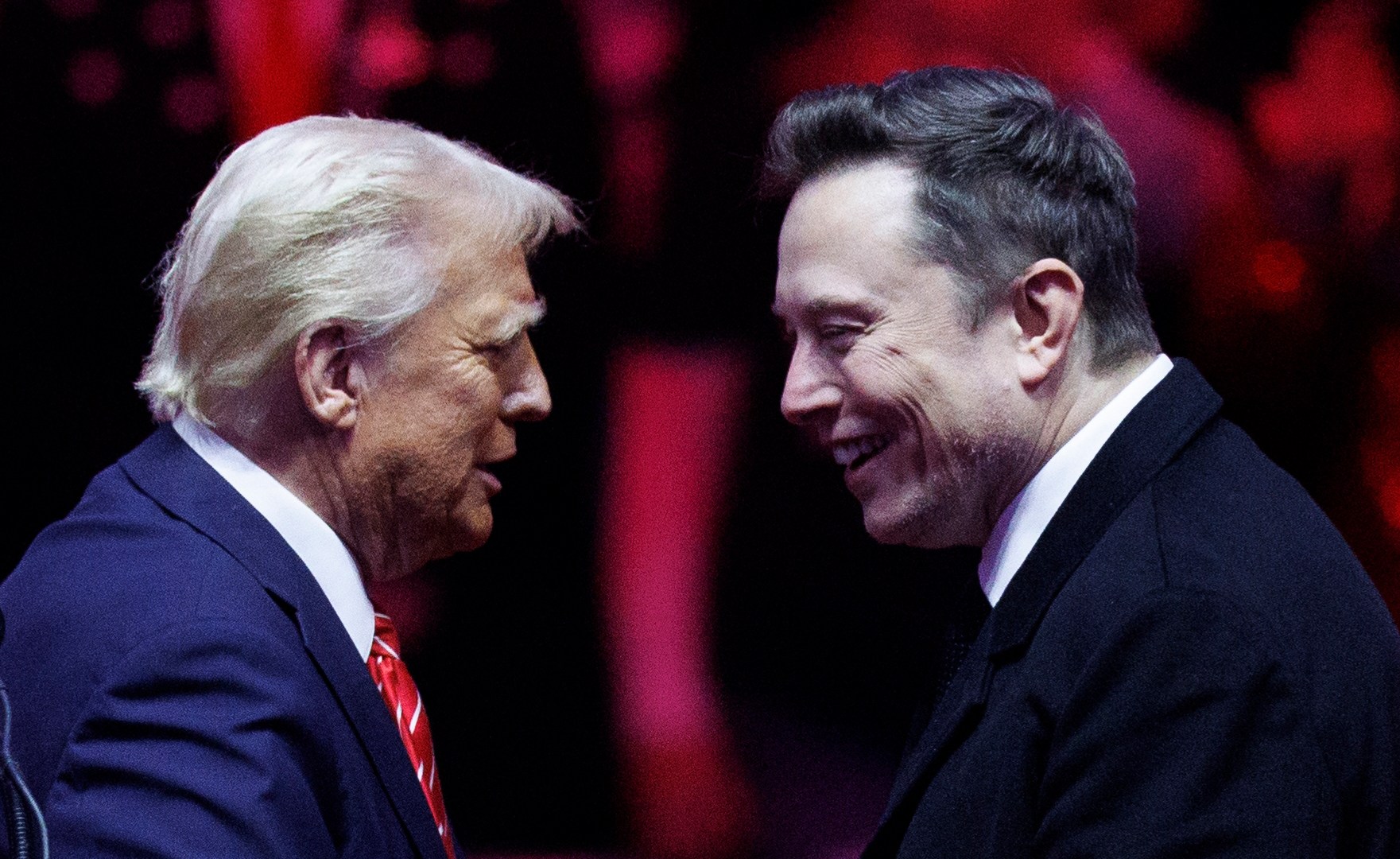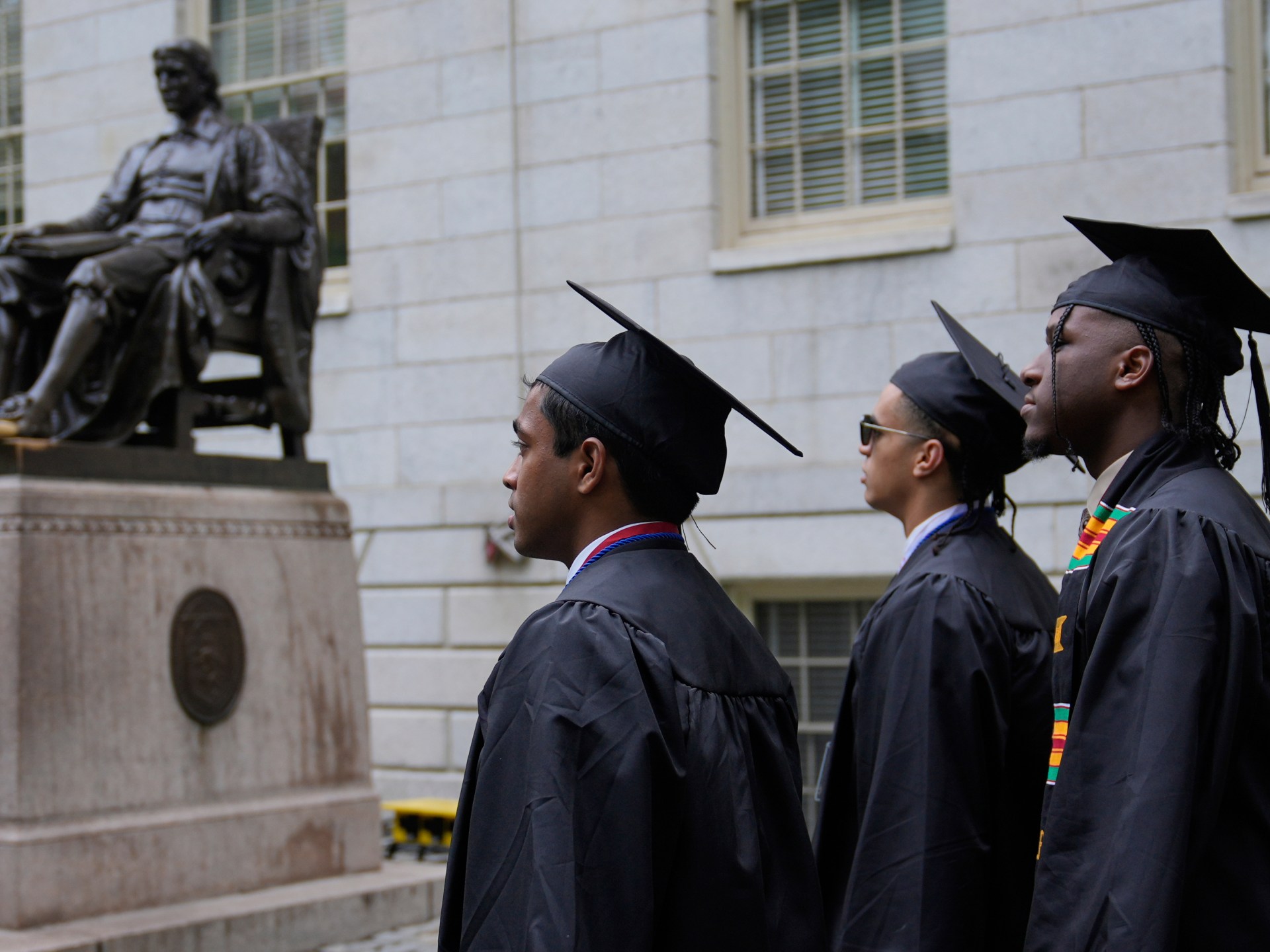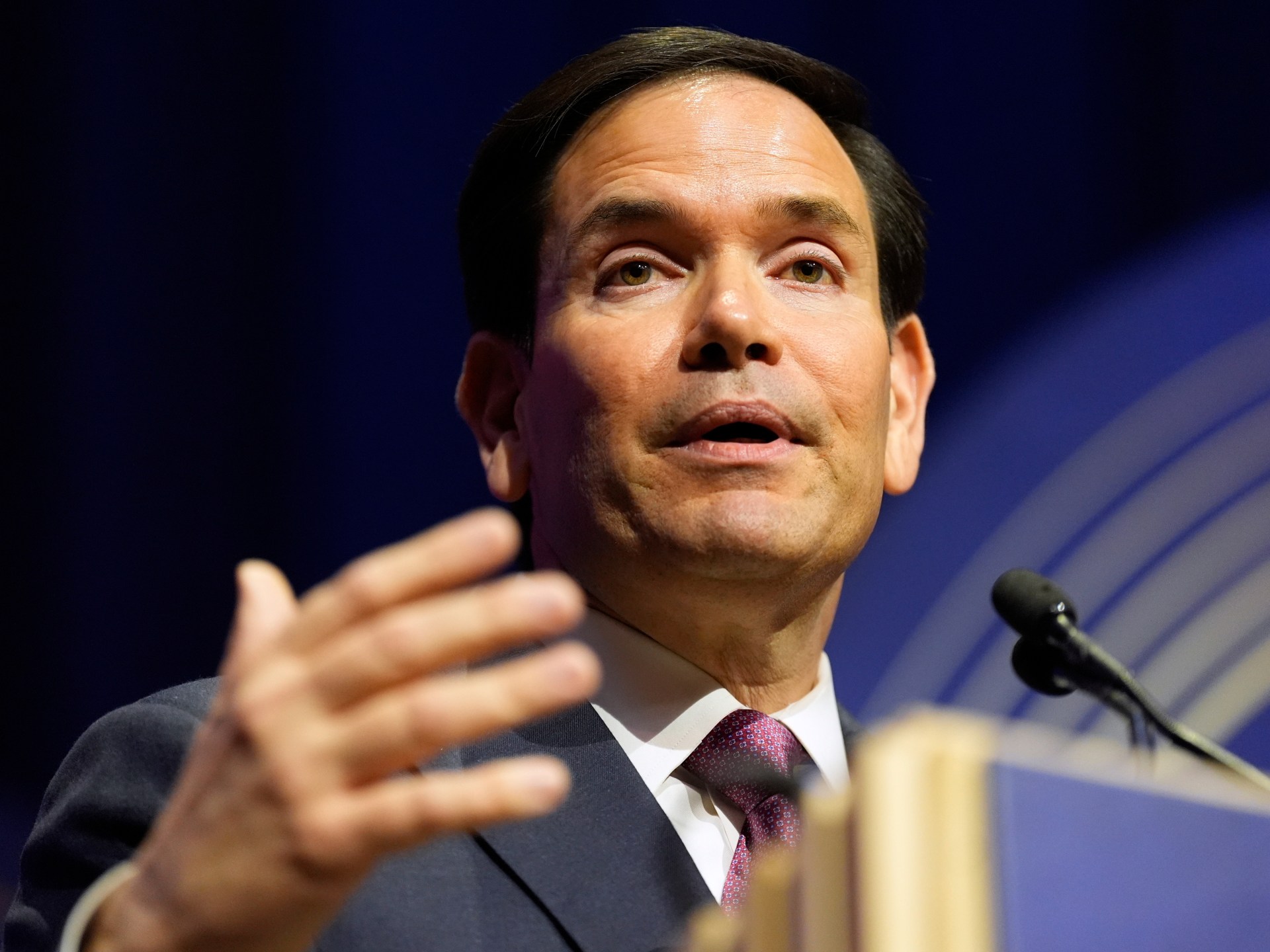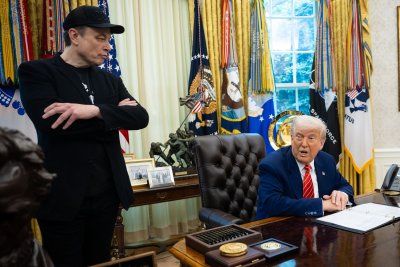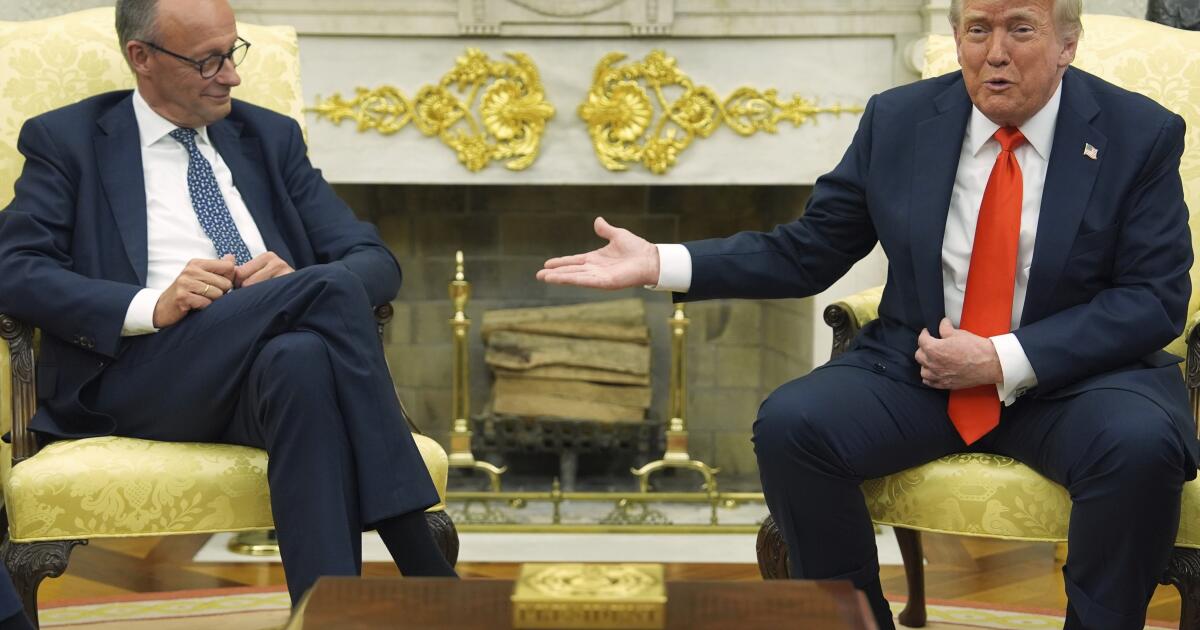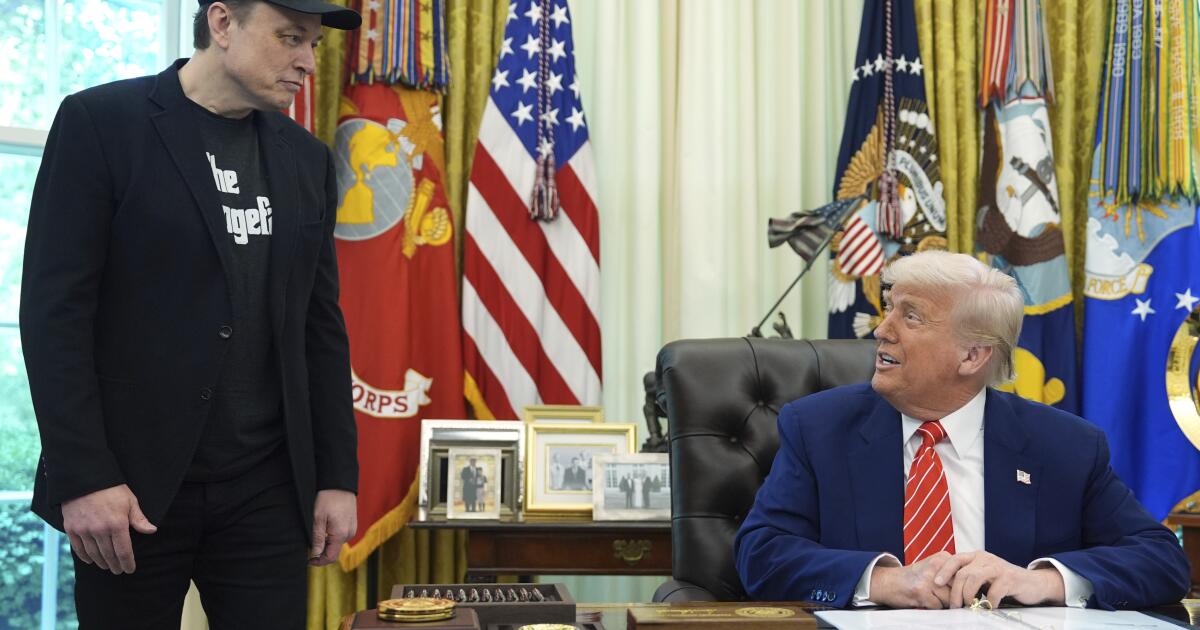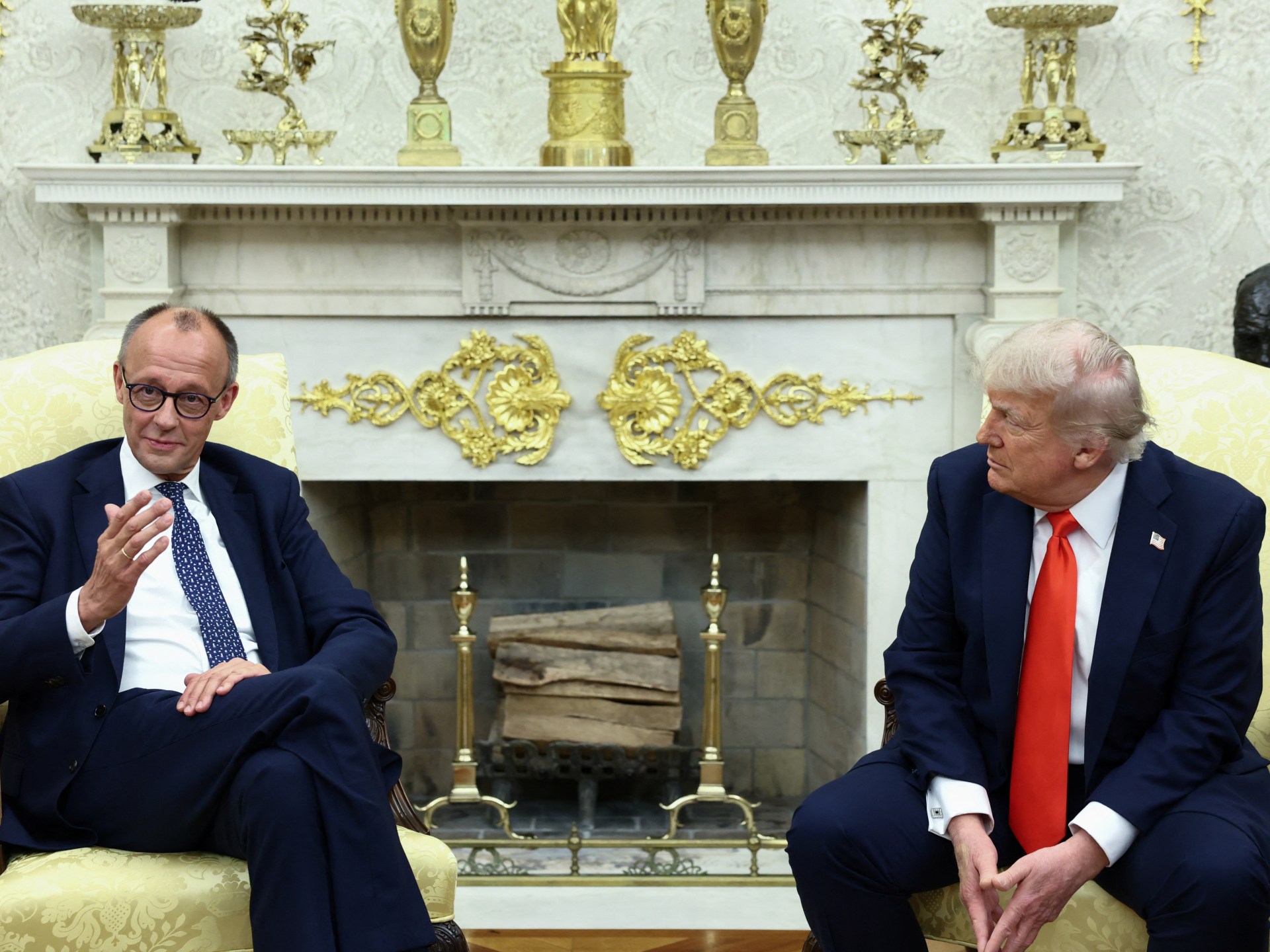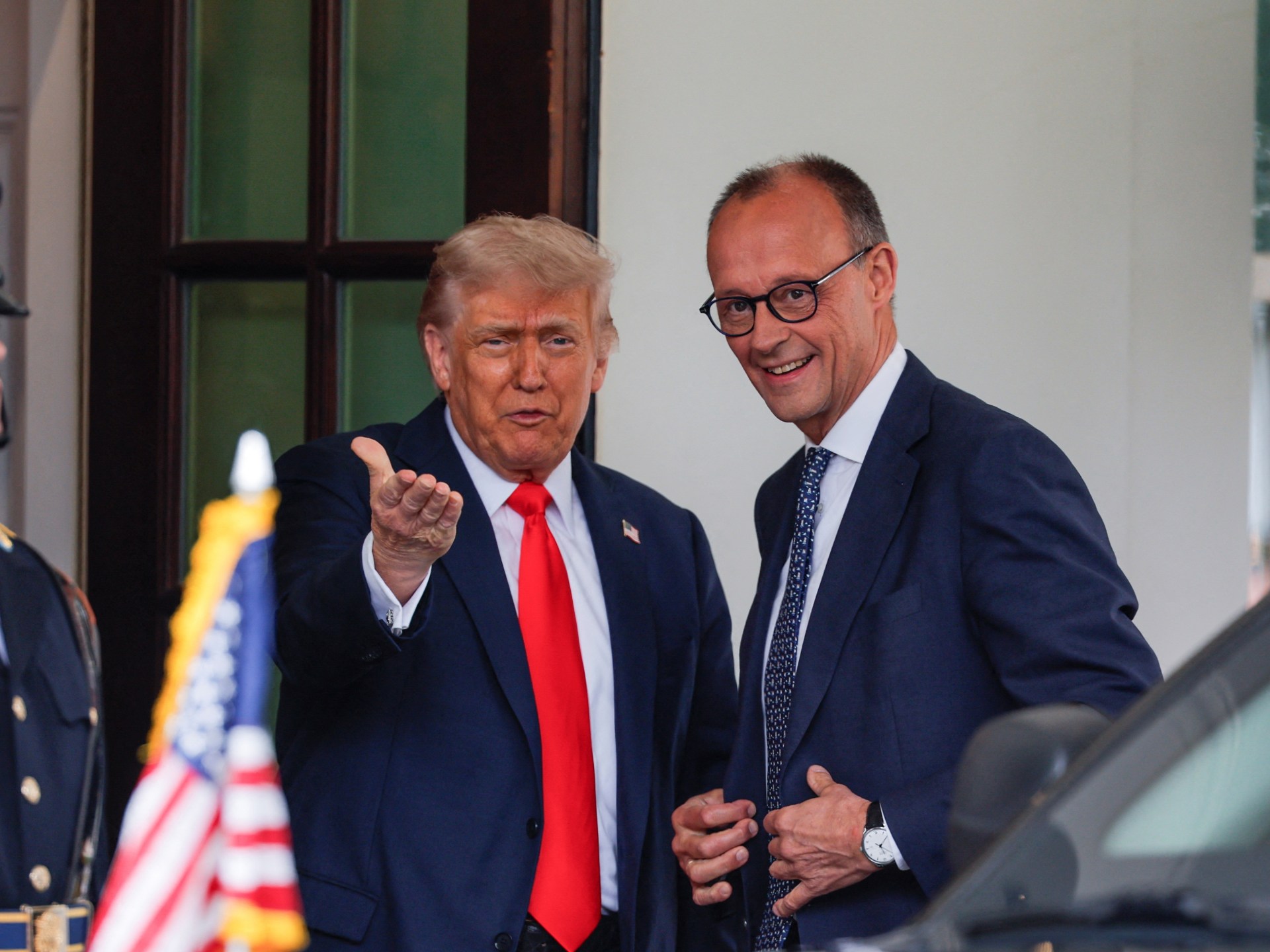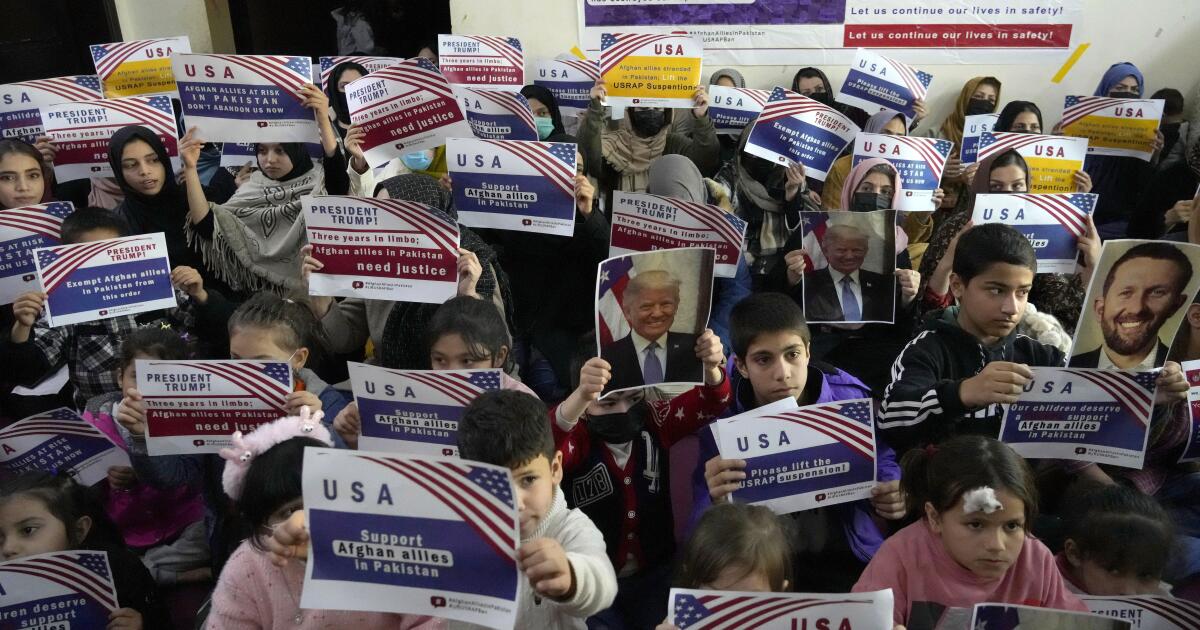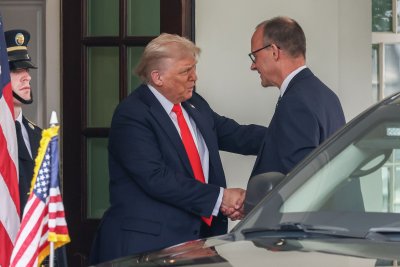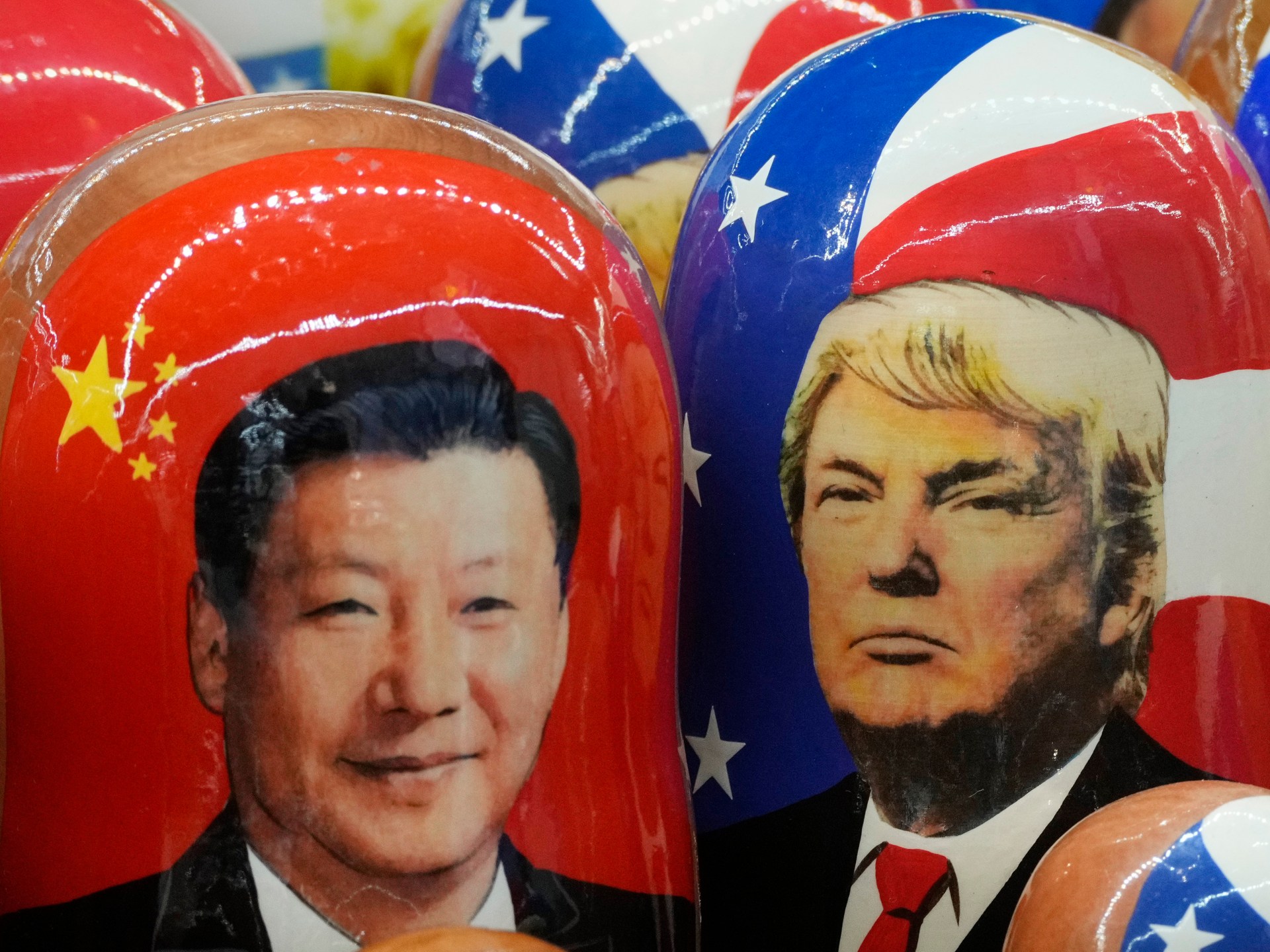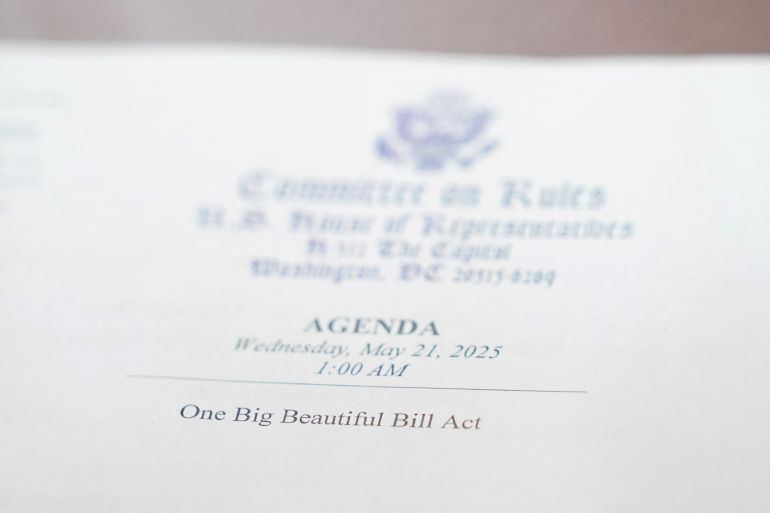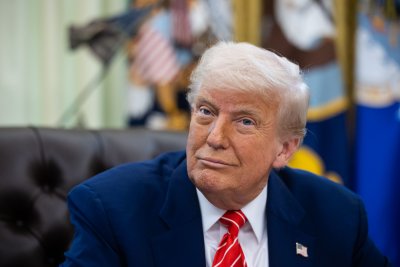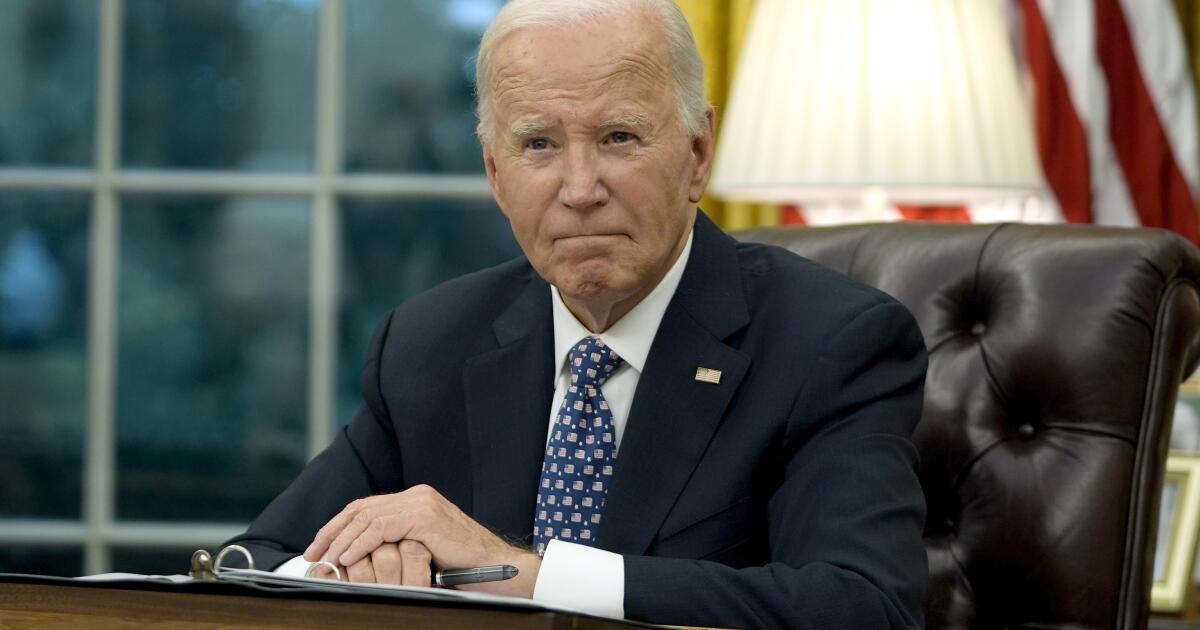Why Paramount’s efforts to settle Trump’s lawsuit have drawn mounting political heat
Paramount Global’s efforts to appease President Trump could carry a steep price, and not just financially. As Paramount executives struggle to win government approval for its planned sale, the legal risks and political headaches are spreading — from Washington to Sacramento.
Three U.S. senators have warned Paramount’s controlling shareholder Shari Redstone and other decision-makers that paying Trump to drop his $20-billion lawsuit over an October “60 Minutes” interview with former Vice President Kamala Harris could be considered a bribe.
Scrutiny widened late last week when two California Democrats proposed a state Senate hearing to probe details of the drama that has roiled the media company for months. The senators invited two former CBS News executives — who both left, in large part, because of the controversy — to testify before a joint committee hearing in Sacramento to help lawmakers examine problems with a possible Trump settlement.
“I haven’t seen a president act in this brazen of a manner,” state Sen. Josh Becker (D-Menlo Park) said in an interview. “We’re concerned about a possible chilling effect any settlement might have on investigative and political journalism. It would also send a message that politically motivated lawsuits can succeed, especially when paired with regulatory threats.”
Settling the Trump lawsuit is widely seen as a prerequisite for regulators to finally clear Paramount’s $8-billion sale to Skydance Media, which Redstone has been desperately counting on to save her family’s fortunes.
Trump contends CBS edited the “60 Minutes” interview to enhance Harris’ appeal in the 2024 presidential election, which she lost. He reportedly rebuffed Paramount’s recent $15-million offer to settle his lawsuit, which 1st Amendment experts have dismissed as frivolous.
“This is a really important case,” said Scott L. Cummings, a legal ethics professor at UCLA’s School of Law. “Legislators are starting to raise alarms.”
But whether federal or state politicians could foil a Trump settlement is murky. Experts caution, for example, that it may be difficult, if a settlement is reached, to prove that Paramount’s leaders paid a bribe.
Congress has grappled with such distinctions before, Cummings said. The U.S. Senate acquitted Trump in February 2020 after the House voted to impeach him for allegedly holding up nearly $400 million in security aid to pressure Ukraine to investigate former President Biden and his son Hunter. Major universities and law firms offered significant concessions to the administration this year to try to carve out breathing room.
“We would have to have a lot more facts,” Cummings said. “Bribery requires a quid pro quo … and [Trump and his lieutenants] are always very careful not to explicitly couple the two things together. But, clearly, they are related, right? This is the challenge, legally speaking.”
Even if a Paramount payoff could be proved to be a bribe, it’s unclear who would prosecute such a case.
No one expects the Trump-controlled FBI or others within the U.S. Department of Justice to investigate allegations of bribery. Trump also has a grip on congressional Republicans and the Federal Communications Commission is run by a Trump appointee, Brendan Carr, who in one of his first acts as chairman, opened a public inquiry into whether the “60 Minutes” edits rose to the level of news distortion.
It may fall to state prosecutors to dig into the issue, Cummings said.
Vice President Kamala Harris talks to “60 Minutes” correspondent Bill Whitaker.
(CBS News)
That hasn’t stopped nationally prominent progressive lawmakers from sounding alarms.
U.S. Sens. Elizabeth Warren (D-Mass.), Bernie Sanders (I-Vt.) and Ron Wyden (D-Ore.) have demanded Paramount provide information about the company’s deliberations or concessions to facilitate a deal with Trump, including whether newscasts were toned down.
“It is illegal to corruptly give anything of value to public officials to influence an official act,” the lawmakers wrote in their May 19 letter to Redstone. “If Paramount officials make these concessions … to influence President Trump … they may be breaking the law.”
Redstone and Paramount failed to respond to the senators’ questions by this week’s deadline, according to Warren’s office.
Sen. Elizabeth Warren (D-Mass.) has suggested that Paramount executives could be liable for unlawfully paying a bribe if it settles President Trump’s lawsuit against CBS to secure approval of Paramount’s sale to Skydance Media.
(Mark Schiefelbein / Associated Press)
Paramount and a Redstone spokesperson declined to comment.
Lawmakers often express interest in big media takeovers, and Skydance’s proposed purchase of an original Hollywood movie studio and pioneering broadcaster CBS could be an industry game changer. But this time, interest is less focused on vetting the Ellison family or the deal’s particulars and more about determining whether Trump inappropriately wields his power.
Trump has demanded Paramount pay “a lot” of money to settle his lawsuit. The president also has called for CBS to lose its station licenses, which are governed by the FCC.
For more than a month, attorneys for Paramount and Trump have participated in mediation sessions without resolution.
Paramount offered $15 million but Trump said no, according to the Wall Street Journal. Instead, the president reportedly demanded at least $25 million in cash, plus an additional $25 million in free commercials to pump his favorite causes. He also wants an apology.
The latter is a red line for CBS News executives who say they have done nothing wrong, according to insiders who were not authorized to discuss the sensitive deliberations.
Paramount’s leaders have clashed over settlement efforts, according to the sources.
The two California state senators — Becker and Tom Umberg (D-Orange) — hope such fractures provide an opening.
Late last week, the pair invited former CBS News and Stations President Wendy McMahon and former “60 Minutes” executive producer Bill Owens to testify at a yet-unscheduled oversight hearing in Sacramento.
McMahon exited CBS last month under pressure for her management decisions, including resistance to the Trump settlement, sources said.
Owens resigned in April, citing a loss of editorial independence.
“You are being approached as friendly witnesses who may help our committees assess whether improper influence is being exerted in ways that threaten public trust and competition in the media sector,” Becker and Umberg wrote to the former executives. Becker is chairman of the Senate Energy, Utilities & Communications Committee; Umberg heads the Senate Judiciary Committee.
California has an interest, in part, because Paramount operates in the state, including a large presence in Los Angeles, Becker told The Times.
The controversy over the edits began in October after CBS aired different parts of Harris’ response to a question during a “60 Minutes” interview a month before the election. Producers of the public affairs show “Face the Nation” used a clip of Harris giving a convoluted response. The following day, “60 Minutes” aired the most forceful part of her answer, prompting conservatives to cry foul.
Trump filed his federal lawsuit in Texas days before the election, alleging CBS had deceptively edited the Harris interview to boost her election chances, an allegation CBS denies. After returning to the White House, Trump doubled the damages he was seeking to $20 billion. His team claims he suffered “mental anguish” as a result of the interview.
CBS has asked the Texas judge, a Trump appointee, to dismiss the lawsuit, saying the edits were routine.
Since then, the FCC’s review of Paramount’s Skydance deal has become bogged down. Paramount needs Carr’s approval to transfer CBS television station licenses to the Ellison family.
Paramount has said it is treating the proposed settlement and FCC review on the Skydance merger as separate matters.
Experts doubt Trump sees such a distinction.
Trump and his team “essentially are using government processes to set up negotiations that end up benefiting Trump personally in ways that raise corruption concerns,” Cummings said.
Paramount’s decision could open the company to shareholder complaints.
The reason Trump’s CBS “60 Minutes” lawsuit has become such a lightning rod is “because the lawsuit is so ridiculously frivolous,” said Seth Stern, advocacy director for the Freedom of the Press Foundation, which owns Paramount shares and has vowed a lawsuit if the company capitulates.
“This is so transparently an abuse of power — a shakedown,” Stern said.
Media analyst Richard Greenfield of LightShed Partners suggested that Trump’s goal may be about more than his reported demand of nearly $50 million.
“The far bigger question is whether there is any number that Trump would want to settle the CBS/60 Minutes lawsuit,” Greenfield wrote in a blog post this week. “If Trump’s goal is to weaken the press and cause persistent fear of lawsuits that could negatively impact business combinations, keeping the CBS/60 Minutes lawsuit ongoing could be in the President’s best interests.”
UCLA’s Cummings sees another deleterious outcome.
A settlement could “legitimize the narrative that Trump puts out that there’s some sort of corruption within these media entities,” Cummings said. “He could point to a settlement and say: ‘I told you they did something wrong, and they now agreed because they paid me this amount of money.’ ”
“Even though they would be paying to get this deal through,” Cummings said.
